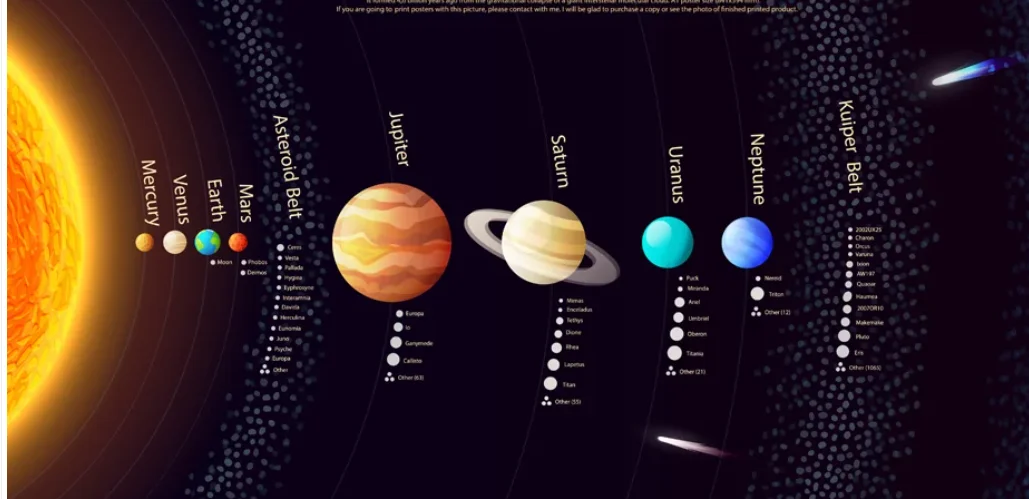![]() June 14, 2024
June 14, 2024
![]() 2318
2318
![]() 0
0
The universe, believed to have originated about 13.8 billion years ago with the Big Bang, has been expanding and evolving ever since. This event led to the formation of fundamental particles, atoms, stars, and galaxies. Key concepts such as dark energy and dark matter play crucial roles in our understanding of the cosmos. From defining planets and dwarf planets to exploring various celestial phenomena, the study of space continues to reveal the mysteries of our vast universe.
Origin of the Universe: It is believed that the universe was born about 13.8 billion years ago in an event called the Big Bang.

Definition: The most recent definition of a planet was adopted by the International Astronomical Union in 2006. It says a planet must do three things:
Kuiper Belt: The Kuiper Belt is a ring of icy rocks & dust bodies just outside of Neptune’s orbit, known as Kuiper belt objects or trans-neptunians.
EHT is a group of 8 radio telescopes used to detect radio waves from space.
Chandrasekhar Limit
|
| Must Read | |
| Current Affairs | Editorial Analysis |
| Upsc Notes | Upsc Blogs |
| NCERT Notes | Free Main Answer Writing |
Understanding the universe’s origins and the celestial phenomena within it helps us grasp our place in the cosmos. From the Big Bang to the roles of dark matter and energy, these concepts form the foundation of modern astronomy.
<div class="new-fform">
</div>
Latest Comments